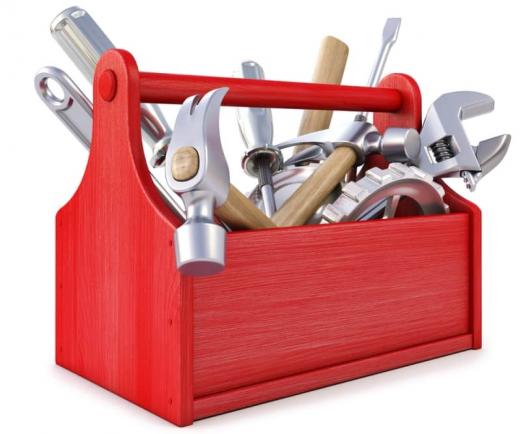
Screwdrivers, measuring tapes and levels were a part of the daily scene in my house. With a father involved in construction management, I quickly became accustomed to the sounds of hammers striking nails, and saws buzzing as they sliced through wood. As I spent hours watching my father work, it was easy to see how the tools that he used were specific to the goal that he was trying to achieve. If he wanted to make a piece of wood smaller, he would use a saw, not a screwdriver. In all of his craftsmanship, he used great care.
Use the right tool for the job
As I prepare to begin a family of my own, I have become aware of the need to fill my parenting toolbox. Following the example of my father, I select the tools that will help me accomplish my goals as a parent with great care.
Empathy is a handy tool
In this quest to fill my toolbox, I have discovered that empathy is a powerful tool. Have you ever found yourself saying, "Don't try to fix it, just listen"�? The need to feel understood is one that is universally shared by humankind. Ironically, when most of us try to help another, we often listen just long enough to think of a solution, and then jump right in to problem solving.
Dr. John Gottman, a well-known researcher in family studies remarked that, "Much of today's popular advice to parents ignores emotion. Instead, it relies on child rearing theories that address children's misbehavior, but disregards the feelings that underlie that misbehavior. The ultimate goal of raising children should not be simply to have an obedient and compliant child. Most parents hope for much more for their children."�
Why is a focus on emotion so important? "Parenting with Love and Logic," a popular parenting curriculum, suggests that when empathy is modeled by the parent, children use empathy with others, as well. They further suggest that empathy helps parents to achieve the fine balance between helping children to understand that their parents care about them and also that they are firm in their discipline.
Just listen
Alfie Kohn, a nationally known educator suggests that the most effective parenting toolboxes use strategies that move away from getting kids to do what they are told, to working with children to help meet their needs.
"To be a great parent is more of a function of listening than explaining,"� explains Kohn. "As a rule, our first priority is to figure out the source of the problem to recognize what our children need."� Kohn suggests that if we can communicate that we care about and understand our children's emotions, our children will feel their worth whether they succeed or fail.
Empathy is a simple tool, yet a powerful one with many applications. Making the simple resolve to talk less and listen more can become a great tool in helping children to feel loved and understood.

